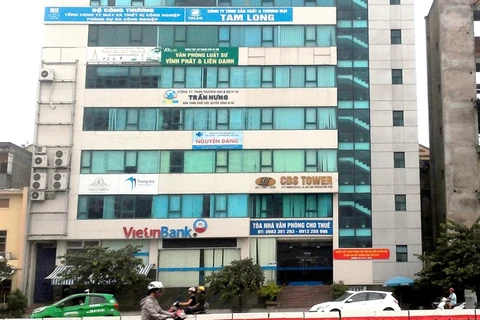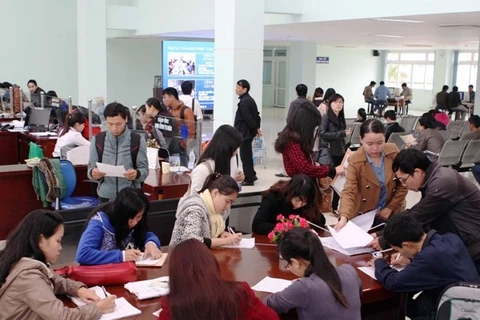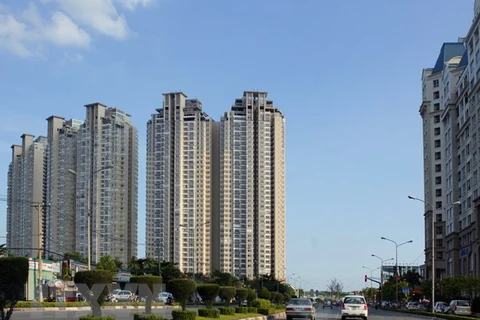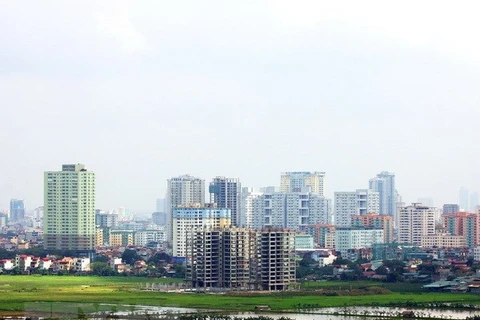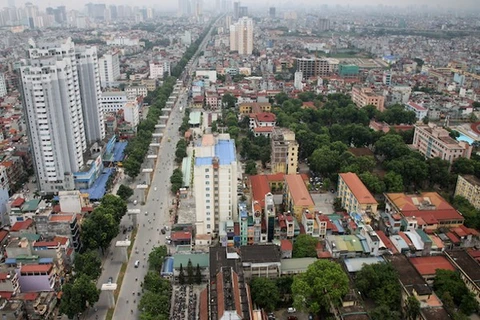 Co-working space is growing strongly in Vietnam, according to real estate service provider CBRE Vietnam (Photo: VNA)
Co-working space is growing strongly in Vietnam, according to real estate service provider CBRE Vietnam (Photo: VNA) HCM City (VNA) – Co-working space in Vietnam is growing in terms of both suppliers and types of co-working spaces targeting specific renters, real estate service provider CBRE Vietnam said on May 29.
As of April 2018, there were 19 co-working spaces in Hanoi and 15 in Ho Chi Minh City, and they were run by 23 operators, including two foreign operators. The two cities are expected to respectively make up 56 percent and 44 percent of a total 45 co-working spaces by the end of this year.
The number of co-working spaces has increased by 55 percent over the last five years in the country.
Duong Thuy Dung, Senior Director and head of Research and Consulting at CBRE Vietnam, said domestic co-working space providers like Toong, UP, Circo and Dreamplex are expanding their market shares. However, while the numbers of co-working spaces and operators are growing, small suppliers with only one space are also increasing rapidly.
The market share of these small operators is forecast to rise from 30 percent last year to 42 percent in 2018, and big operators will make up about 12 percent of the market.
Foreign operators like NakedHub from China and Hive from Hong Kong (China) are also gaining a foothold in the local market. While Hive plans to open a new co-working space in HCM City in late 2018, NakedHub is expected to open two more venues in HCM City and Hanoi in the second quarter of this year.
CBRE Vietnam noted that co-working spaces are often not located in prime buildings or downtown areas as operators need to keep rental costs manageable. Instead, they are more usually found in underutilised buildings in decentralised locations.
Both Toong and UP, two Vietnamese operators, locate their co-working spaces in buildings of class B or lower.
In Hanoi and HCM City, co-working spaces tend to concentrate in areas near the cities’ downtown. In Hanoi, some spaces have recently been placed in Cau Giay district, an emerging office and shopping mall centre. Meanwhile, these venues are scattered across districts near HCM City’s central area such as Districts 2, 3, 4, Binh Thanh and Phu Nhuan.
Co-working space operators are switching their focus on particular clients, which will affect the location of their venues.
Toong is providing spaces for various groups of renters when each of its space has its own special design. Circo is opening co-working spaces in the locations from which their clients can easily move to downtown areas. Meanwhile, UP is focusing on attracting new start-ups.
Duong Thuy Dung cited results of a CBRE survey that 91 percent of the co-working space users are millennials, who are under 35 years old. This proportion is higher than the global average of 67 percent and reflects Vietnam’s young demographics.
About 54 percent of the users are founders or employees of start-ups, and nearly 14 percent are freelancers or self-employed. More than 55 percent of the users work in the IT industry while the remaining are in such sectors as tourism, finance-economy, education, marketing and property.-VNA
VNA
